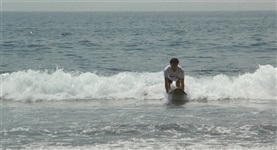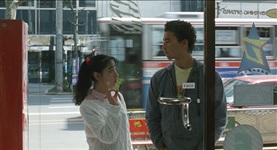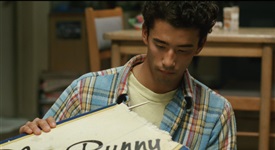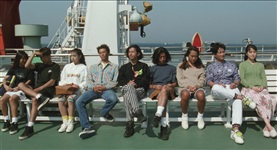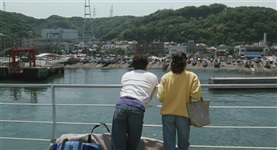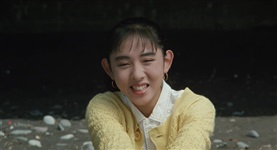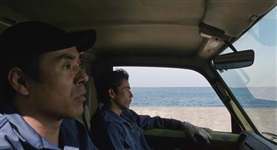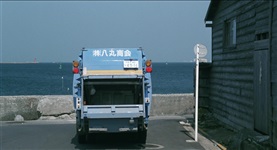A Scene At The Sea (1991)
.jpg)
A young garbage collector sees a broken surfboard that has been thrown out and decides to try and repair it. He then starts going to the beach with his doting girlfriend and teaching himself how to surf. At first the local surfers find his lack of ability comical, but they come to admire his quiet perseverance and he gradually becomes a part of the community.
A SCENE AT THE SEA was Takeshi Kitano's third film as director, and the first in which he does not also appear on screen. It's a slow film in which he further develops his signature style of oblique storytelling via sparse dialogue (both of the main characters are deaf-mute) and long, static shots. I largely dismissed it as boring when I first watched it, and to be honest I haven't exactly reversed that opinion, but knowing what to expect at least meant I was in the right mood for it this time.
In other hands the film might have been an underdog story of a struggle against the odds to win the surfing championship, but Shigeru is never in any danger of winning the championship and is well aware he is only a B-class surfer. He sets himself realistic goals and patiently works towards them, and through perseverance he becomes competent, and is content with that.
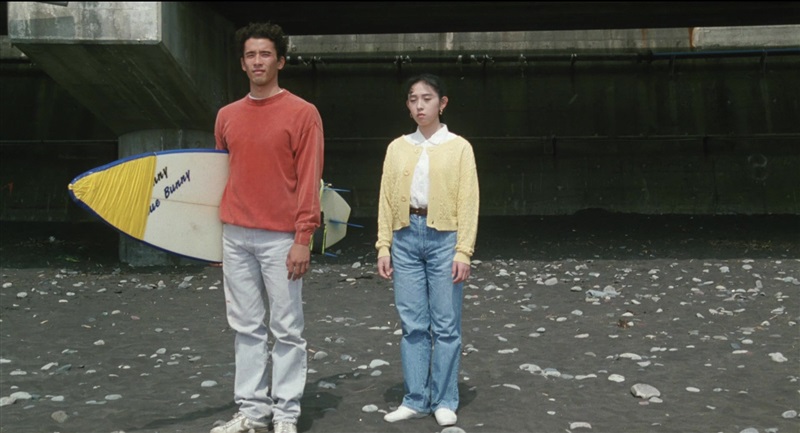
Kitano clearly has a love for the coastal towns of Japan, and captures the charm of these communities eloquently with his camera, showing a particular respect for the blue collar workers that inhabit them.
Kitano has said that the recurring presence of a scene set at the seaside in his films is always an omen of impending death, which might suggest a film literally called A Scene At The Sea is building towards a bloody massacre, but that is not the case. It is not completely casualty free, but it does seem to have been a conscious decision to make a film without any of the violence of his previous work. Susumu Terajima registers his objections in an amusing and brief appearance.
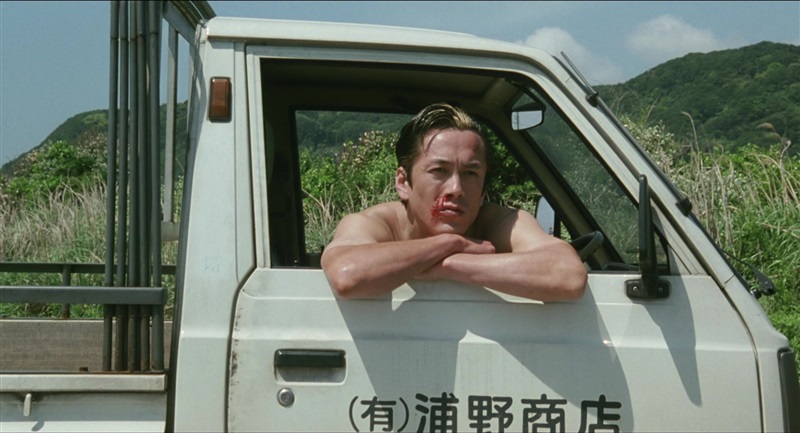
The lack of action in the film is somewhat compensated by a lively score from Joe Hisaishi, melodic and evocative and a major part of the film, it marked the beginning of a long and fruitful period of collaboration between composer and director.
A SCENE AT THE SEA is one of Kitano's most cryptic films, it doesn't have a clear narrative arc and the characters only provide indirect insights into their motivations and state of mind. The ending is especially cryptic, offering finality but not resolution.
I don't think I'll ever love this film, though I see that many do, and would probably rank it nearer the bottom of his filmography than the top, but it does offer a unique perspective of one of the world's most fascinating film makers as he honed his style and craft.
Crew
| Director | |
|---|---|
| Writer | |
| Producer | |
| Soundtrack | |
| Editor |
